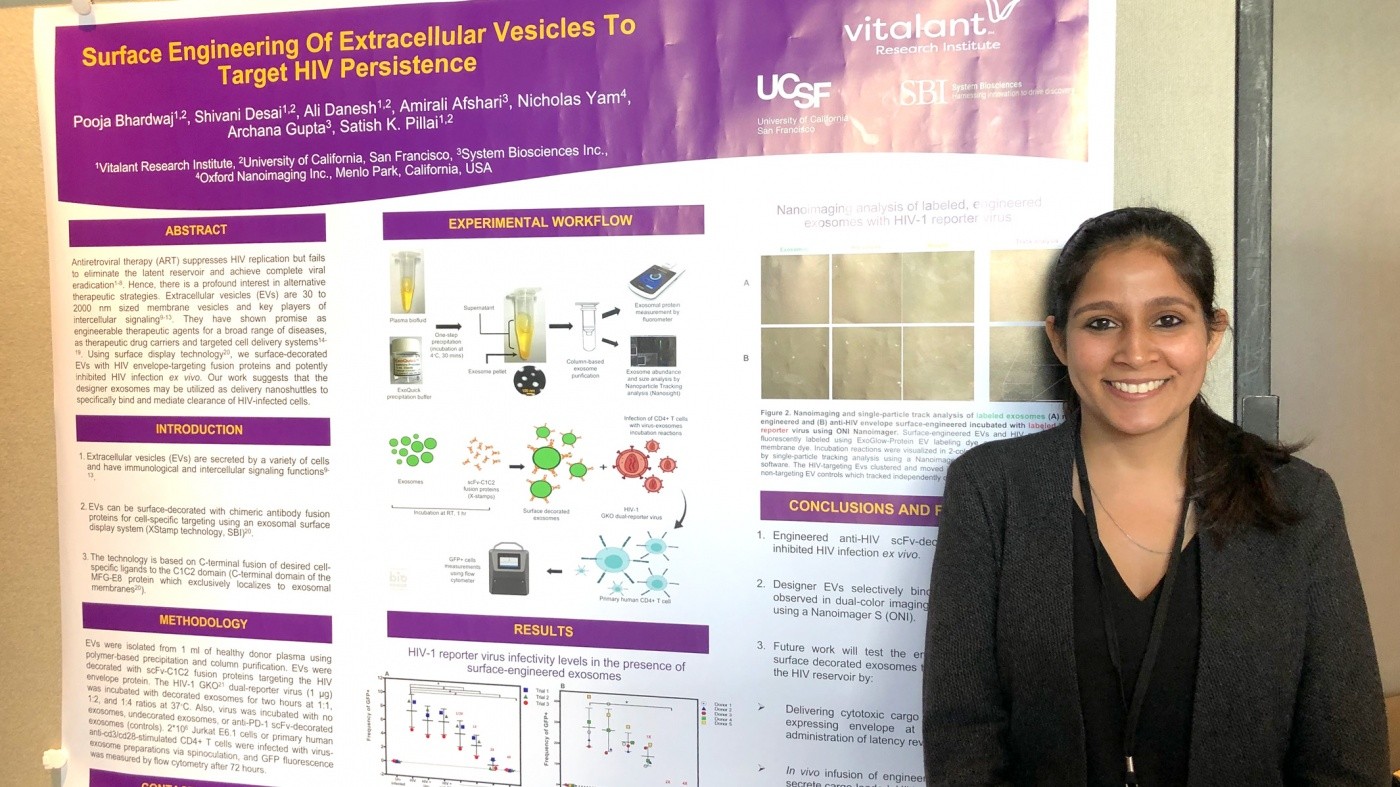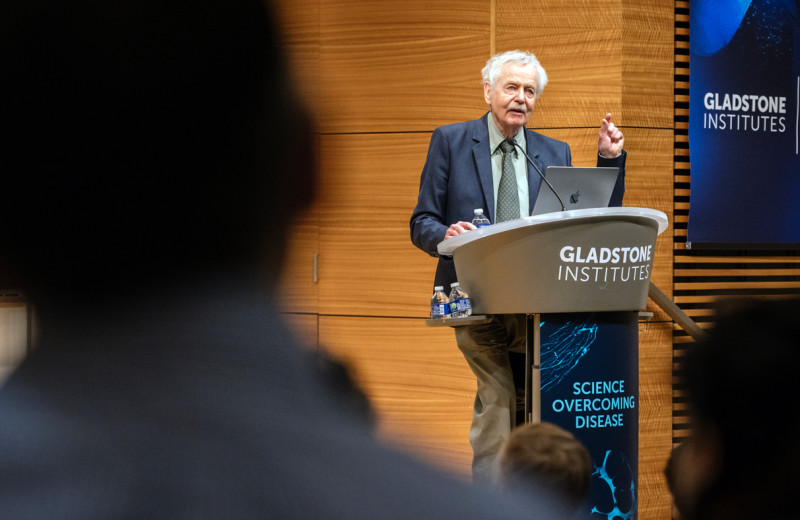Gladstone NOW: The Campaign Join Us on the Journey✕

Pooja Bhardwaj presents her poster “Surface Engineering of Exosomes to Block HIV Infection as a Novel Antiviral Approach.”
Earlier this summer, Pooja Bhardwaj, PhD, was awarded the Cynthia Bolovan-Fritts Research Excellence Award at the 9th annual Bay Area Symposium on Viruses held at UC Berkeley. The award is presented annually to an up-and-coming researcher with the best poster at the symposium.
The Cynthia Bolovan-Fritts Research Excellence Award was created in honor of Gladstone scientist Cynthia Bolovan-Fritts, PhD, who passed away in 2017. She worked in the lab of Gladstone Senior Investigator Leor Weinberger, PhD. Her research focused on human cytomegalovirus, the leading cause of birth defects and organ transplant failures.
“Cynthia was the most dedicated scientist I have ever met,” said Leor Weinberger, William and Ute Bowes Distinguished Professor. “She could be found in lab late into the night, intent on finding the next breakthrough.”
Bolovan-Fritts was passionate about training and mentoring the next generation of scientists, particularly undergraduate and post-baccalaureate researchers. In 2018, Weinberger launched the award with Ed Mocarski, PhD, her previous adviser at Stanford University, in order to keep her legacy alive and continue her work of inspiring young researchers.
This year, Bhardwaj received the award for her poster based on her collaborative work with System Biosciences Inc., and ONI Nanoimaging titled, “Surface Engineering of Exosomes to Block HIV Infection as a Novel Antiviral Approach.” Bhardwaj received her PhD from University of Texas at Dallas and is currently a postdoc in the lab of Satish Pillai, PhD, at the Vitalant Research Institute in San Francisco.
Bhardwaj’s work on novel antiviral approaches embodies Cynthia’s own dedication to developing antiviral treatments.
Support Discovery Science
Your gift to Gladstone will allow our researchers to pursue high-quality science, focus on disease, and train the next generation of scientific thought leaders.
Gladstone Scientist Nadia Roan Elected to American Academy of Microbiology
Gladstone Scientist Nadia Roan Elected to American Academy of Microbiology
Roan has made great strides in understanding how persistent viruses including HIV cause disease and how immunity to viruses shapes human health.
Awards News Release COVID-19 HIV/AIDS Infectious Disease Roan LabA Sculptor of Modern Regenerative Medicine
A Sculptor of Modern Regenerative Medicine
Among his myriad accomplishments, Rudolf Jaenisch—winner of the 2025 Ogawa-Yamanaka Stem Cell Prize—was the first to demonstrate the potential of induced pluripotent stem cells to treat disease.
Awards Ogawa Stem Cell Prize Profile Regenerative Medicine Stem Cells/iPSCsSix Gladstone Scientists Named Among World’s Most Highly Cited Researchers
Six Gladstone Scientists Named Among World’s Most Highly Cited Researchers
The featured scientists include global leaders in gene editing, data science, and immunology.
Awards News Release Corces Lab Doudna Lab Marson Lab Pollard Lab Ye Lab



